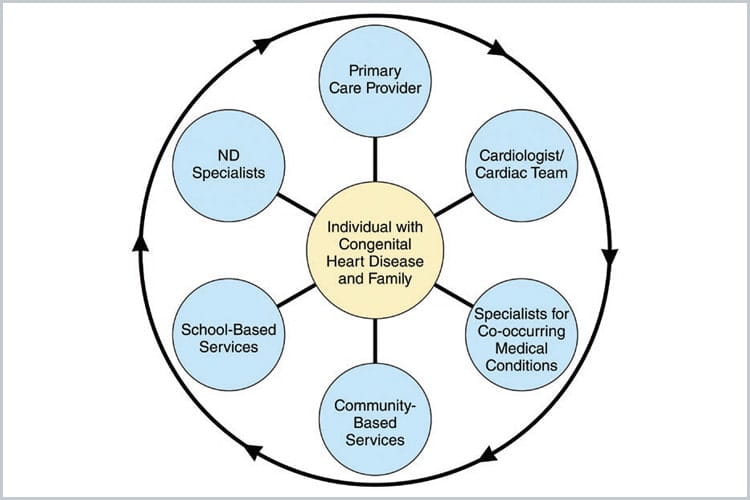- Home
- Science News
- Neurodevelopmental Outcomes for Individuals With Congenital Heart Disease
Neurodevelopmental Outcomes for Individuals With Congenital Heart Disease: Updates in Neuroprotection, Risk-Stratification, Evaluation, and Management
Published: February 22, 2024

- Congenital heart disease (CHD) is the most common birth defect, with an estimated prevalence of 9 per 1000 births worldwide. Approximately 25% of individuals with CHD require surgical or catheter-based intervention during infancy.
- Neurodevelopmental deficits rank among the most common and enduring complications faced by individuals with CHD, with long-term impacts on social functioning, educational attainment, economic self-sufficiency, and health-related quality of life.
- This scientific statement provides updated information about the age-based evaluation of individuals with CHD at high risk for developmental delay or disorder and the management of neurodevelopmental deficits in infancy, childhood, adolescence, and adulthood. It includes a revised algorithm for referral, evaluation, and management of high-risk individuals.
Neurodevelopmental and Psychosocial Outcomes in Patients with Congenital Heart Disease Revisited
Brad Marino, a leading pediatric cardiologist at the Cleveland Clinic Pediatric and Adult Heart Center, and Erica Sood, a pediatric psychologist at Nemours Children's Health, discuss the new scientific statement on neurodevelopmental outcomes in individuals with congenital heart disease. They explain why neurodevelopmental outcomes in patients with congenital heart disease are essential to monitor, outline the risk categories and neuroprotective strategies, and explain the need for policy changes to ensure access to neurodevelopmental services and reinforce the significance of cardiac neurodevelopmental research.
Supporting Materials
- Commentary: Expanded and Updated Scientific Statement Sets a Path Towards the Future of Neurodevelopmental Care in Congenital Heart Disease by Jacqueline H. Sanz, PhD, ABPP
- Top Things to Know: Neurodevelopmental Outcomes for Individuals with Congenital Heart Disease, Revisited: Neuroprotection, Risk-Stratification, Evaluation, and Management
Recommended Reading
- 2018 AHA/ACC Guideline for the Management of Adults With Congenital Heart Disease
- Psychological Outcomes and Interventions for Individuals With Congenital Heart Disease
- Perioperative Considerations for Pediatric Patients With Congenital Heart Disease Presenting for Noncardiac Procedures
- Developmental Care for Hospitalized Infants With Complex Congenital Heart Disease
- Fetal Brain Volume Predicts Neurodevelopment in Congenital Heart Disease